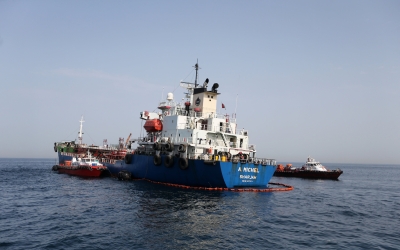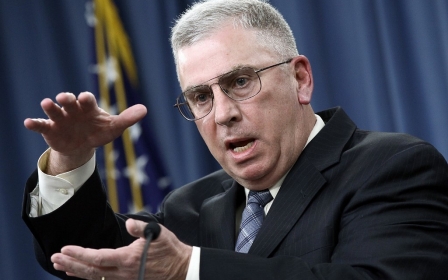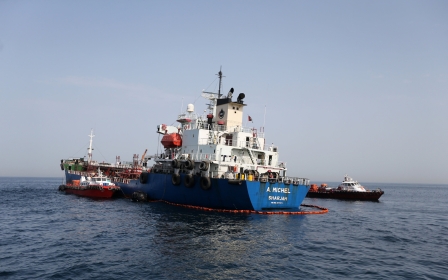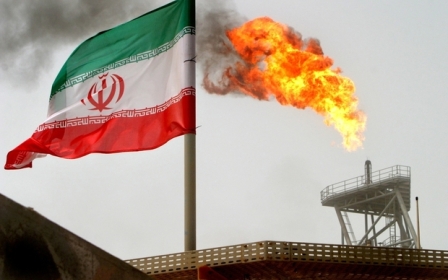US orders some government employees to leave Iraq 'as soon as possible'
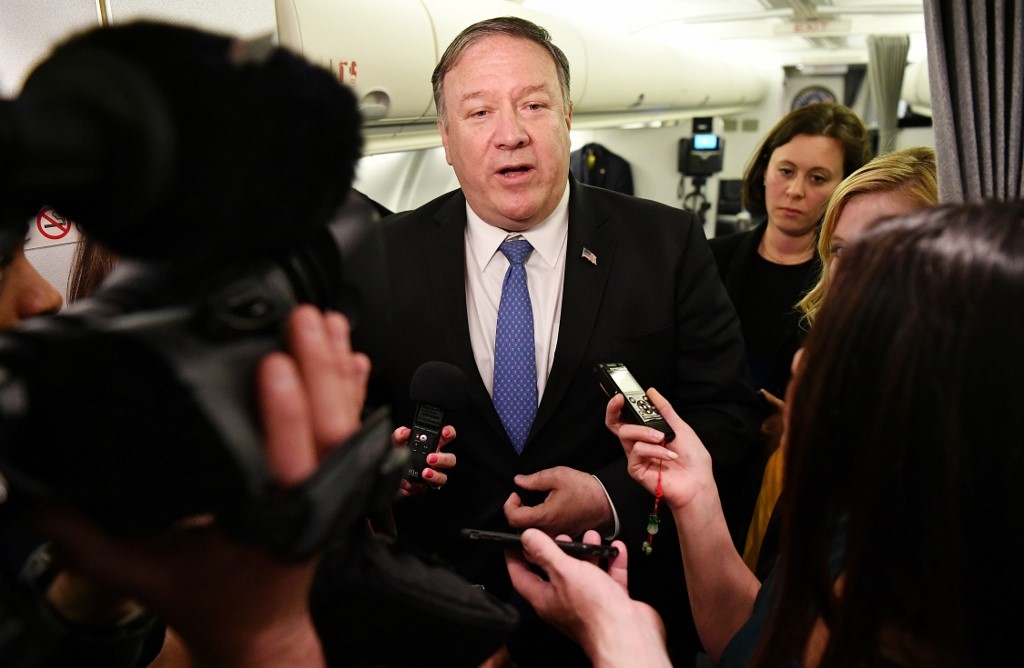
Washington has ordered the departure of non-emergency government employees from Iraq after repeated US expressions of concern about threats from Iranian-backed forces.
In a statement on Wednesday, the US State Department ordered the pullout of employees from both the US Embassy in Baghdad and its consulate in Erbil, recommending that they depart "as soon as possible" on the first possible commercial transportation.
"Normal visa services at both posts will be temporarily suspended," it said.
A US State Department spokesman said the decision to withdraw non-emergency staff was based on a security assessment, but would not give details on how many personnel were leaving.
"Ensuring the safety of US government personnel and citizens is our highest priority and we are confident in the Iraqi security services' (ability) to protect us," he said. "But this threat is serious and we want to reduce the risk of harm."
The order comes a day after the US military reaffirmed concerns about possible imminent threats from Iran to its troops in Iraq and following weeks of stepped up American accusations and actions against Tehran more broadly.
Tehran has called the US claims about threat in Iran "psychological warfare".
On Tuesday, British Major General Chris Ghika, deputy commander for strategy and information of the US-led coalition fighting Islamic State, cast doubts on the US military's assertions.
"No, there has been no increased threat from Iranian-backed forces in Iraq and Syria. We are aware of their presence clearly and we monitor them along with a whole range of others because that is the environment we are in," Ghika told reporters at the Pentagon.
The US military's Central Command offered a clarifying statement after Ghika's remarks saying that his comments "ran counter to identified credible threats available to intelligence from US and allies regarding Iranian backed forces in the region".
Germany and the Netherlands also announced on Wednesday that they would be suspending training activities in Iraq.
A spokesman for the Defence Ministry said on Wednesday that Germany had indications of potential attacks supported by Iran, he said, adding that this did not mean the training programmes could not resume in the coming days.
Focus Online said the decision had been taken in coordination with partner countries fighting Islamic State in the region.
A spokesman for the German Defence Ministry said the German armed forces had 160 soldiers involved in the training deployment in Iraq.
The Dutch government also said it had suspended a mission in Iraq that provides assistance to local authorities due to a security threat, Dutch news agency ANP reported on Wednesday.
Dutch military personal help train Iraqi forces in Erbil, northern Iraq, along with other foreign troops.
The report gave no details about the nature of the threat.
Iraqi Prime Minister Adel Abdul Mahdi said on Tuesday he was getting indications from talks with both the United States and Iran that "things will end well" despite the rhetoric.
Last month, the Trump administration stepped up sanctions pressure by ending waivers for some countries to purchase Iranian oil and, in recent weeks, has alleged that Iran is preparing to attack troops in the region, has connections to al-Qaeda and is committing acts of sabotage on oil tankers in the Gulf.
Washington has sent additional military forces to the Middle East, including an aircraft carrier, B-52 bombers and Patriot missiles in a show of force against what US officials have said is a threat to its troops and interests in the region without providing specific detail.
A senior Iranian Revolutionary Guards commander has said Tehran would retaliate against any aggressive US moves.
Iranian Supreme Leader Ayatollah Ali Khamenei said on Tuesday that Tehran does not seek war with the United States, despite mounting tensions over US sanctions, Iranian nuclear capabilities and its missile programme.
Middle East Eye propose une couverture et une analyse indépendantes et incomparables du Moyen-Orient, de l’Afrique du Nord et d’autres régions du monde. Pour en savoir plus sur la reprise de ce contenu et les frais qui s’appliquent, veuillez remplir ce formulaire [en anglais]. Pour en savoir plus sur MEE, cliquez ici [en anglais].


